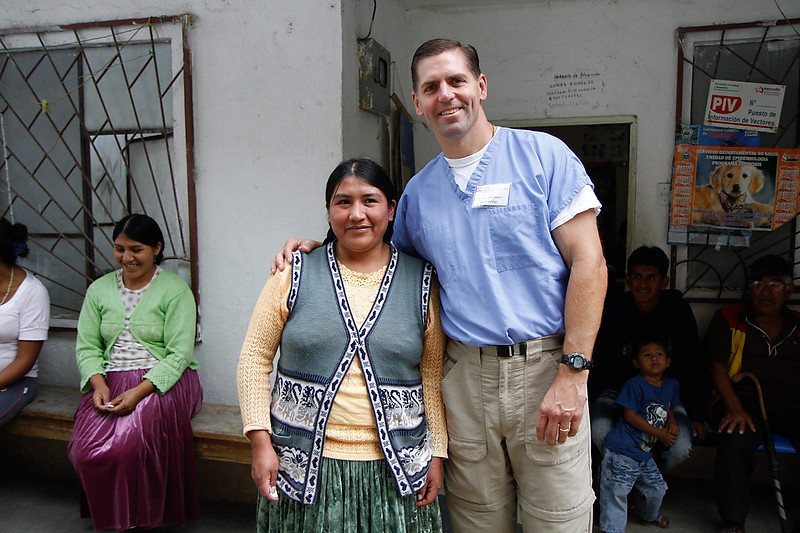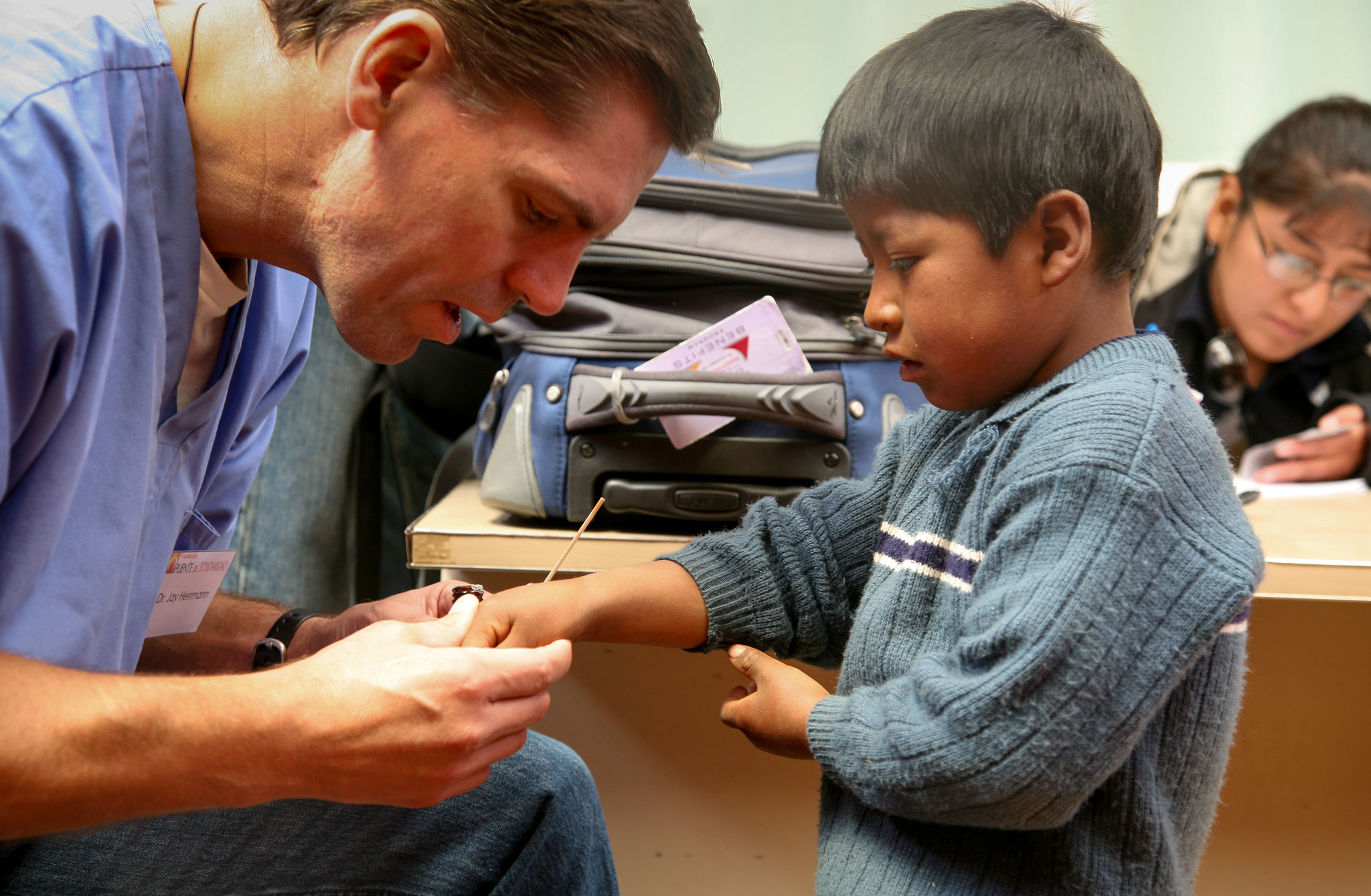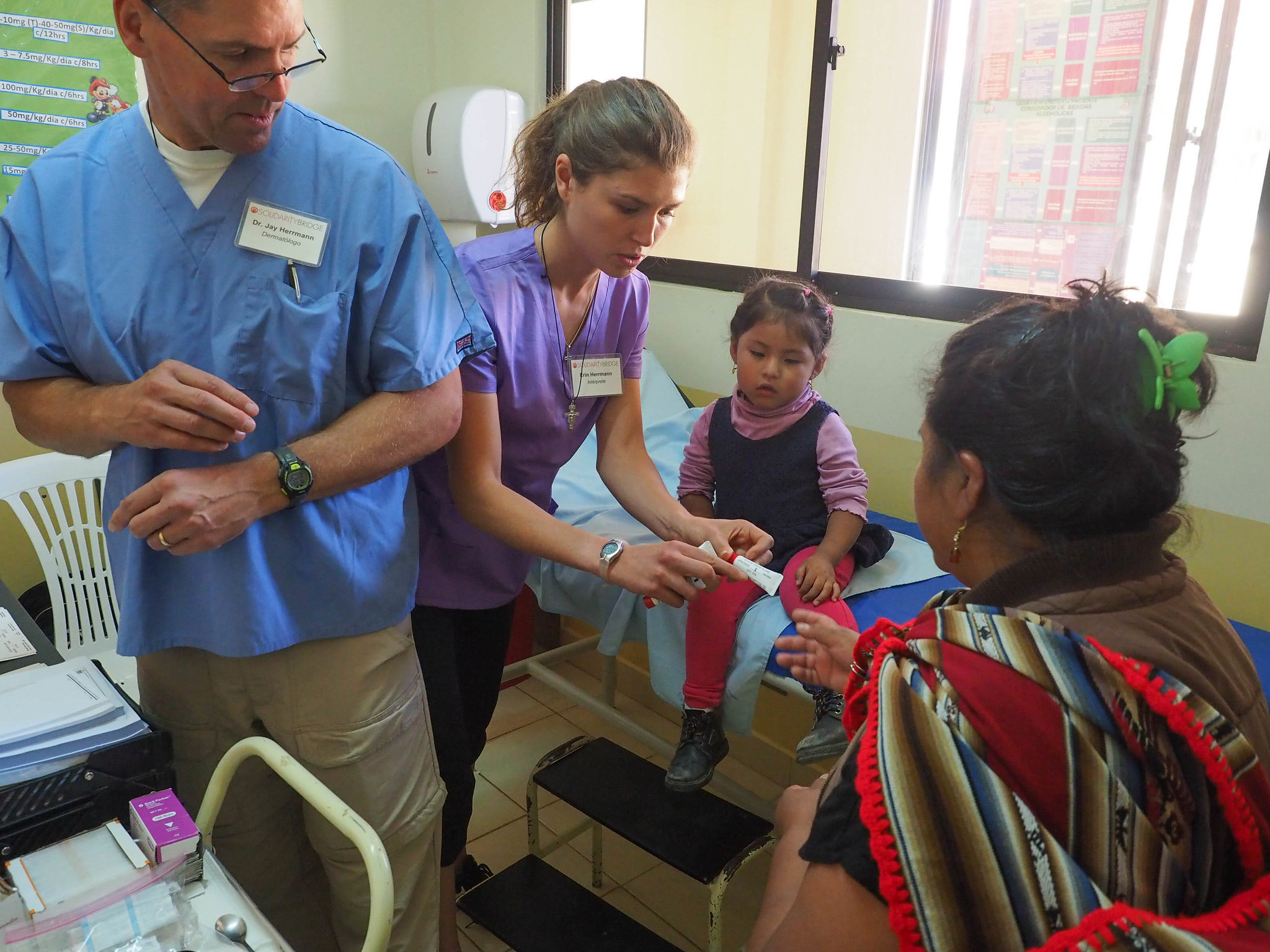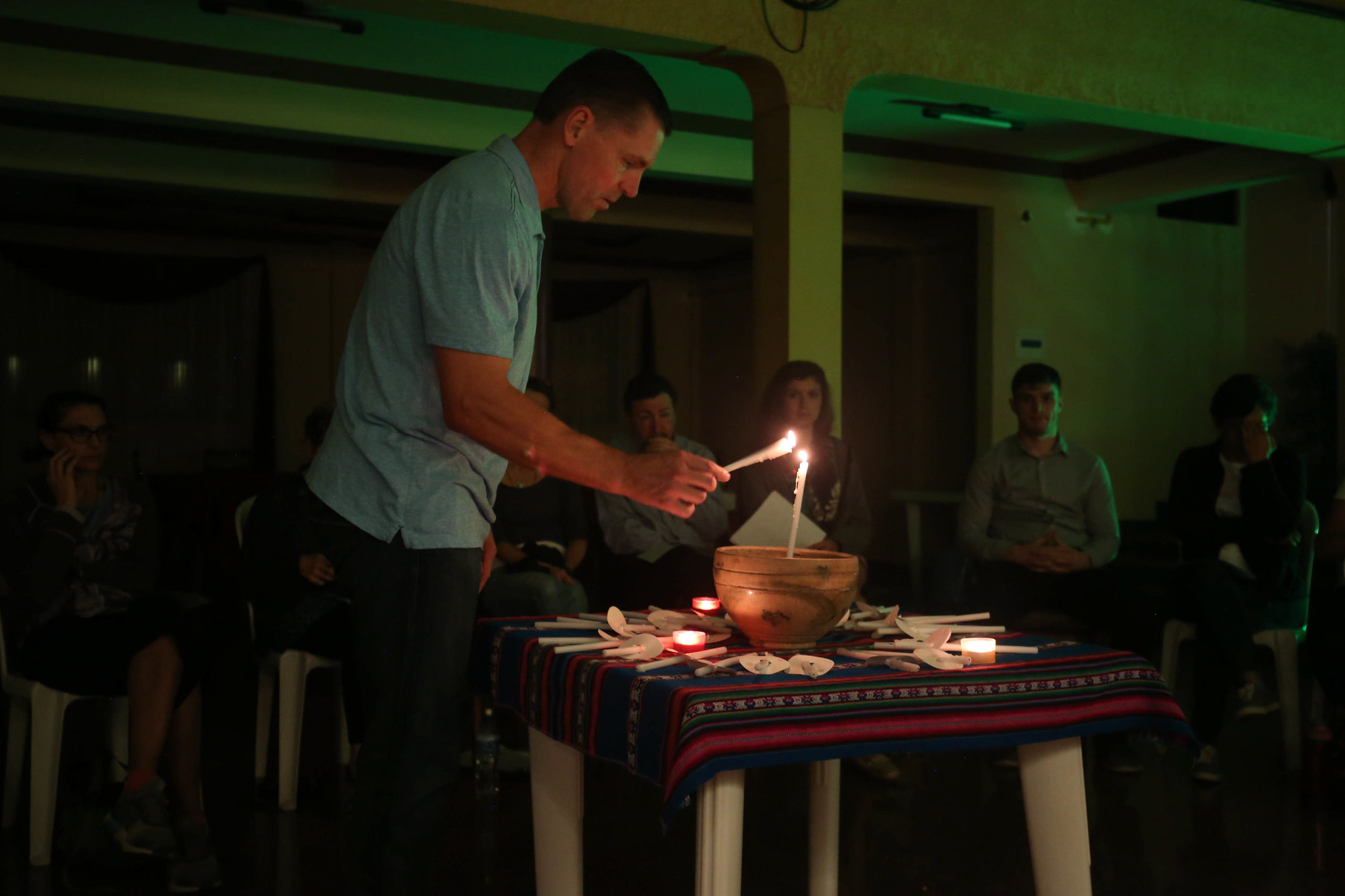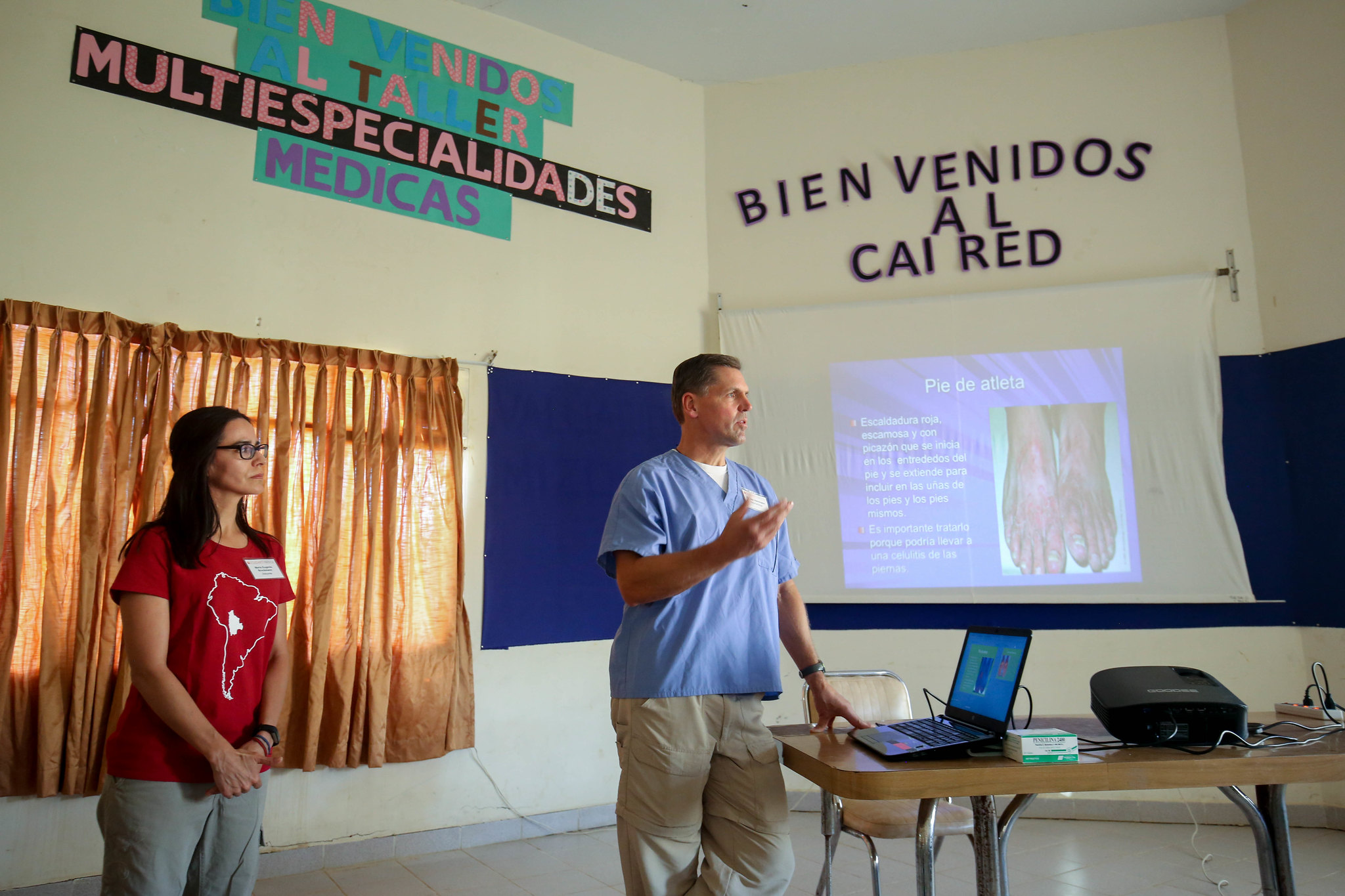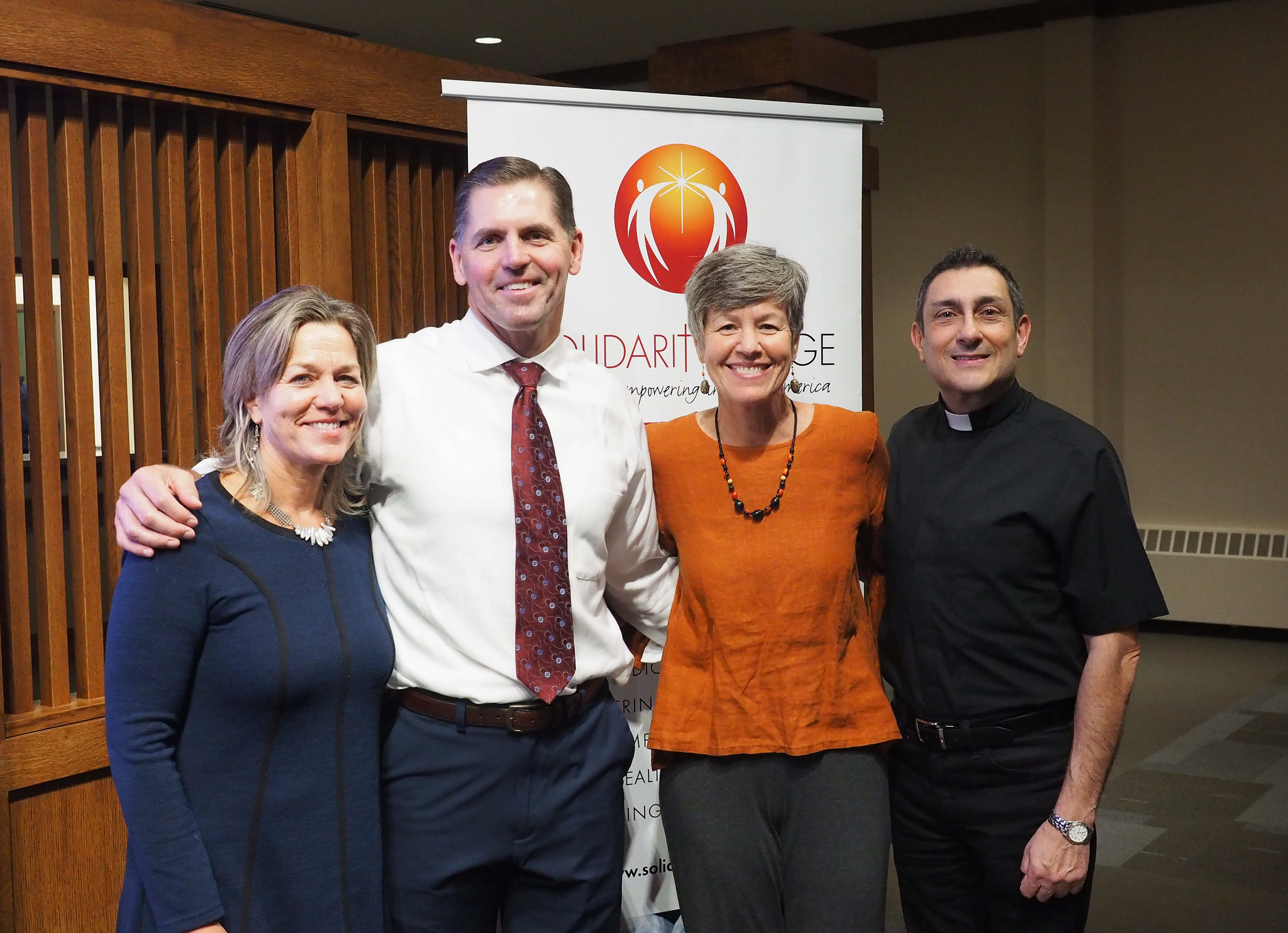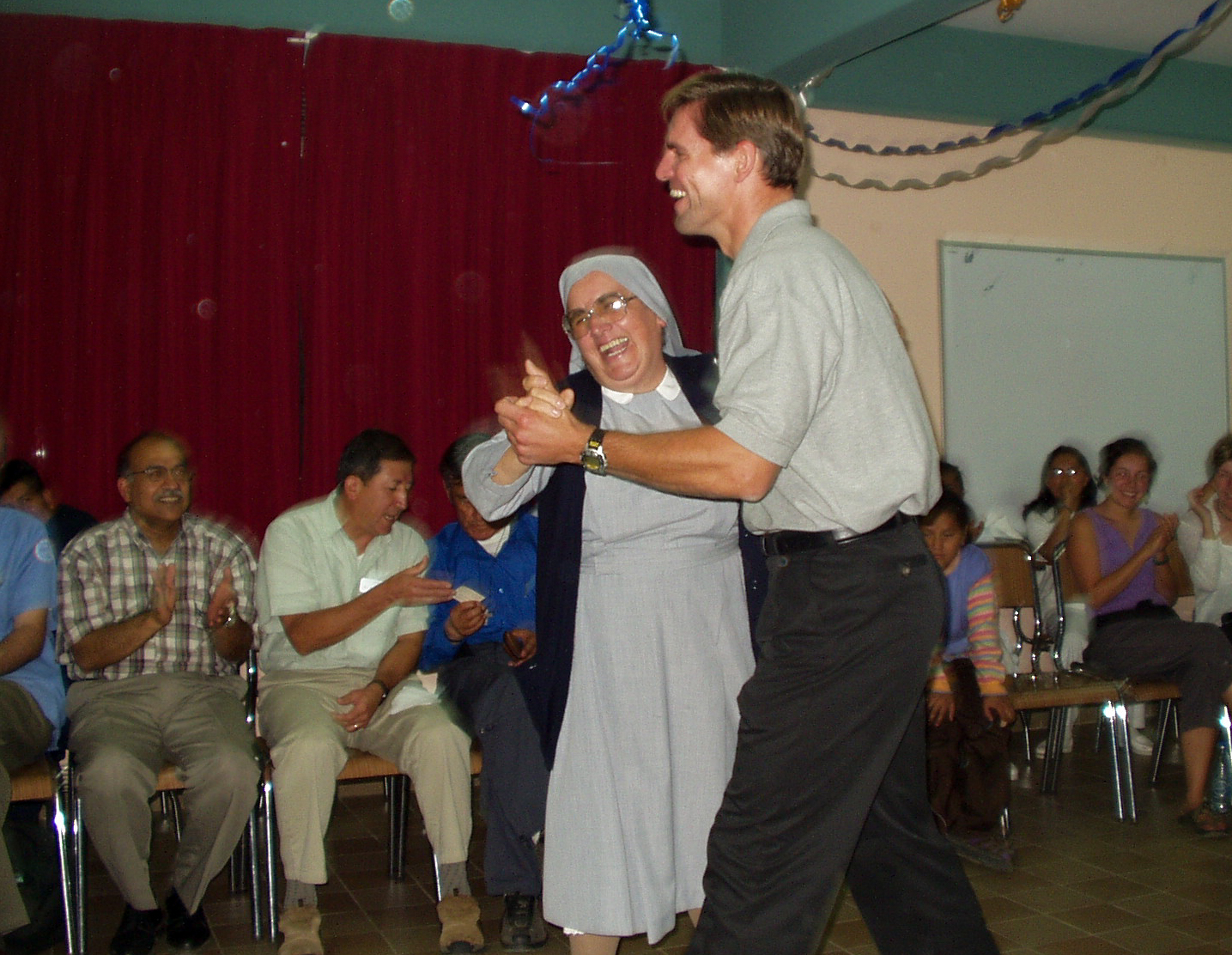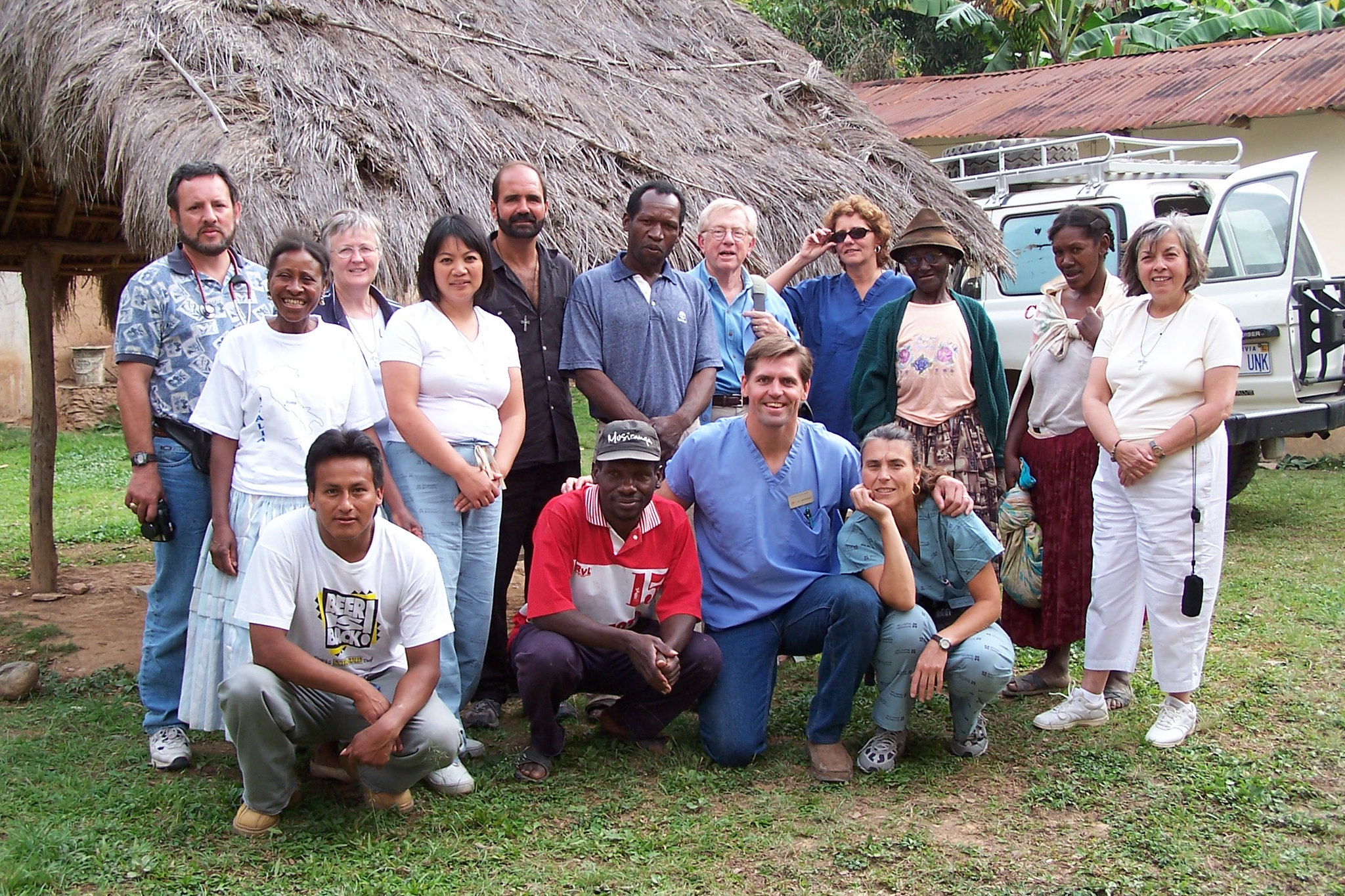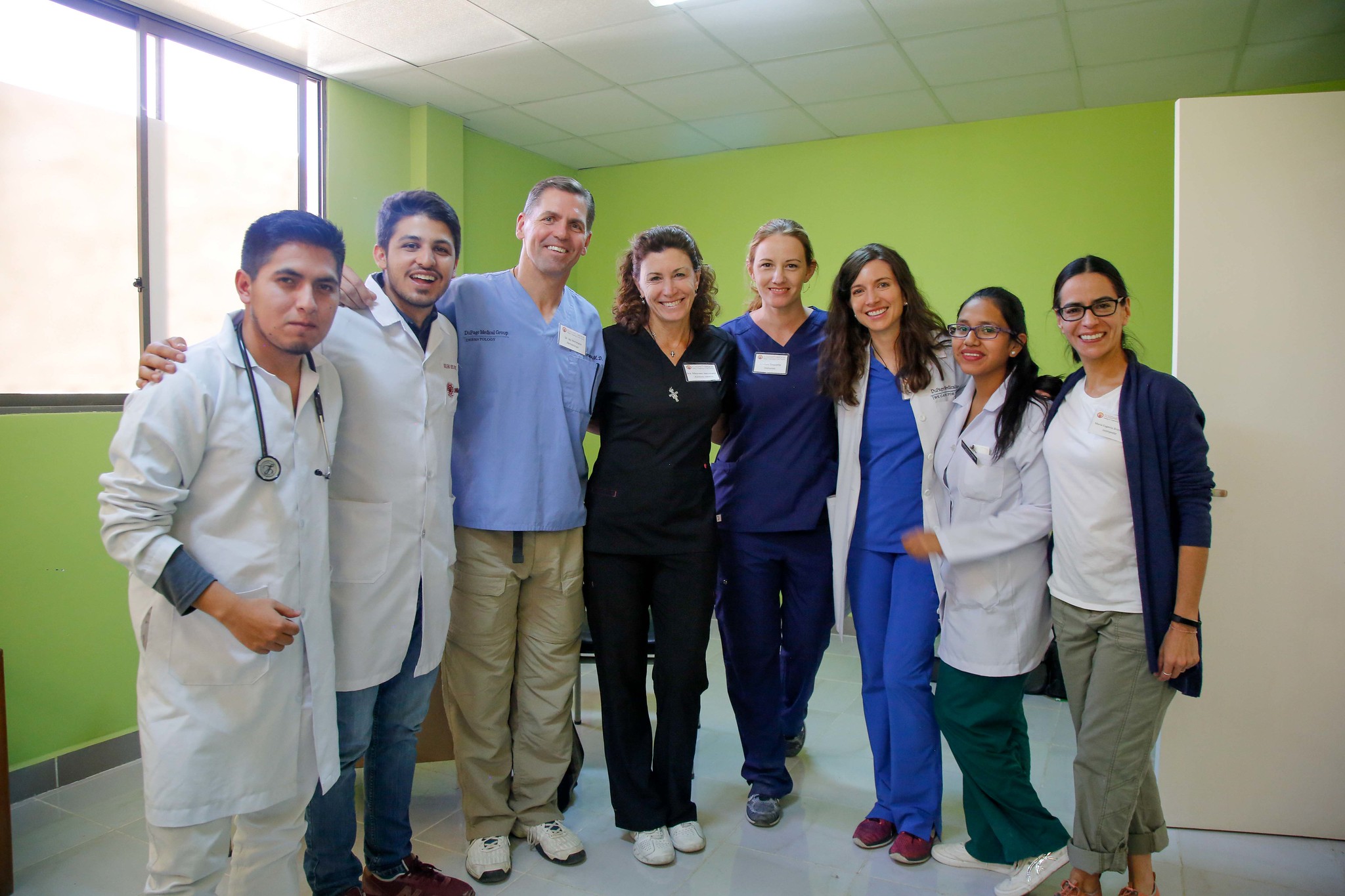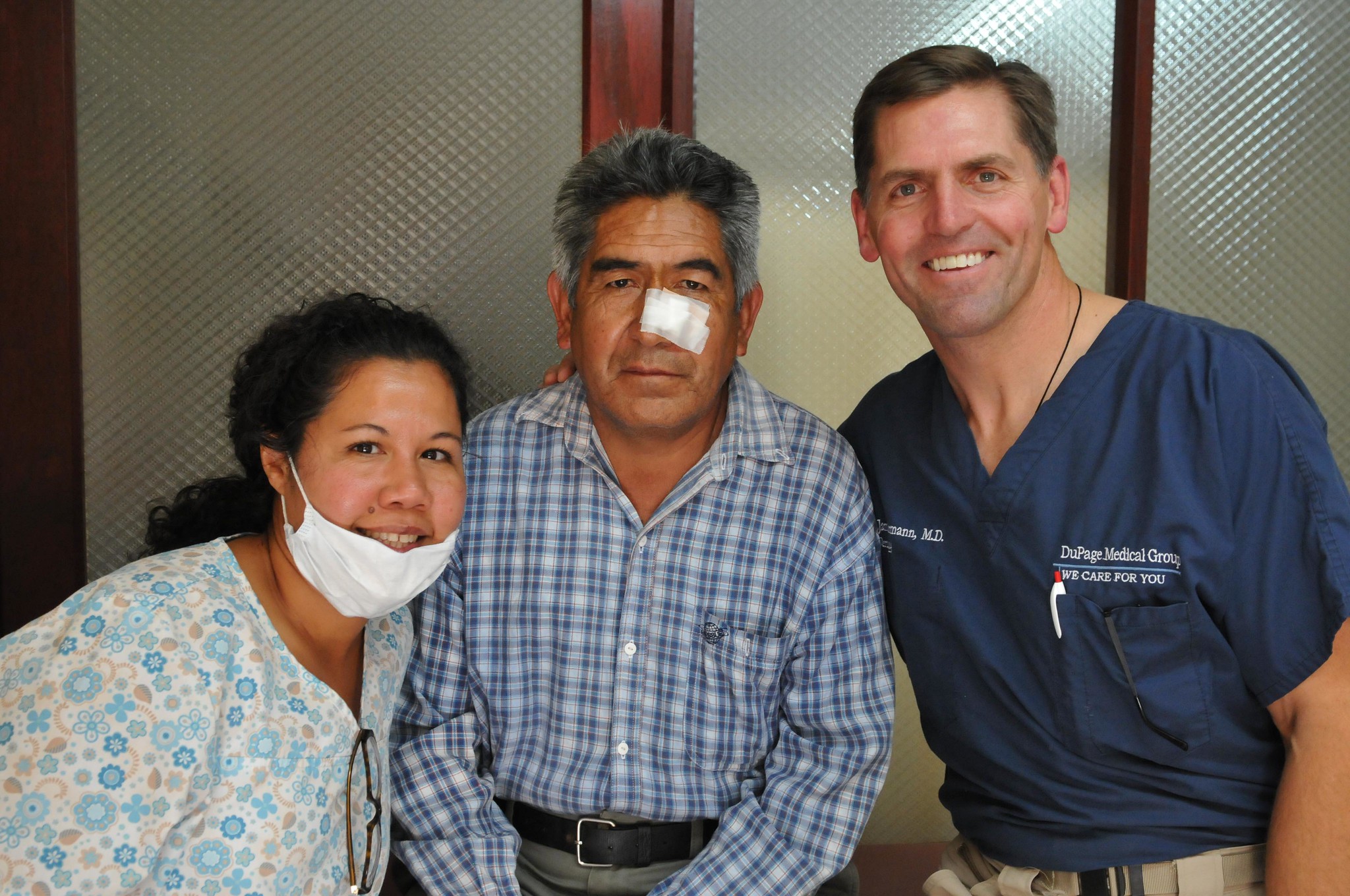An Example of Compassion
Dr. Jay Herrmann Receives 2019 Solidarity Award
Dr. James (Jay) Herrmann MD, a dermatologist who has served thousands of patients on 16 mission trips to Bolivia, received Solidarity Bridge’s highest honor—the 2019 Solidarity Award—at our annual gala on May 4.
“Jay embodies the virtue of solidarity which is at the heart of our mission,” Solidarity Bridge’s executive director, Ann Rhomberg, said. “His humble demeanor, love of neighbor, and passion for medicine create a wonderful example of compassion that inspires others.”
A lifelong resident of Wheaton, Illinois, Dr. Herrmann practices with DuPage Medical Group. He is a board-certified dermatologist and has served as the president of both the Illinois and Chicago Dermatological Societies.
Years ago, when he agreed to join Solidarity Bridge on his first multi-specialty mission trip, Dr. Herrmann had to check Bolivia’s location on a map. Nearly two decades later, he has developed deep relationships, a keen awareness of the local medical context, and a long record of service with our Bolivian patients and partners. In 2013, he joined the Solidarity Bridge board, giving strength to strategic planning and fundraising activities.
Dr. Herrmann and his wife, Maureen, longtime donors to Solidarity Bridge, have three grown children. Over the years, their involvement with the organization has become a family affair. Maureen is a retired internist. She and the couple’s son Andrew, an anesthesia resident, and daughter Erin, a Spanish-speaking special education teacher, have all joined Jay as volunteers on multi-specialty trips. “I’m so thankful for such a loving, caring family who all have the missionary spirit,” Jay says.
Working in clinics in cities and towns across Bolivia, Dr. Herrmann reckons that he has seen about 6,500 patients. The demand for dermatology services around the country is high, since low-income patients often lack access to medical specialists and surgery. On his first mission trip in 2004, Dr. Herrmann remembers being humbled by his own lack of experience with tropical skin diseases like leprosy or leishmaniasis, a parasitic infection. But he mostly treats Bolivian patients with skin cancer, burns, eczema, rashes, acne, and other conditions that are common in the United States.
Returning to Bolivia year after year is about “being able to take care of patients who otherwise would not have access to health care, for no reason other than the fact that they were born in poor circumstances,” says Dr. Herrmann, who sees newborns up to the very elderly. “I don’t think it’s fair they should have to suffer.”
Mission trips also offer unique opportunities for US doctors to share knowledge and experiences with their Bolivian counterparts. Dr. Herrmann collaborates with Bolivian general practitioners and dermatologists in clinic and he has appeared on local television programs and given lectures about his specialty.
To maximize his impact, Dr. Herrmann prepares for months in advance of each mission trip. He has harnessed financial support from his home parish, St. Michael Catholic Church in Wheaton, and solicits local pharmacies and pharmaceutical companies to donate medications he can administer to Bolivian patients.
Dr. Herrmann’s colleagues and friends—and the patients who wait patiently in long lines to see him—say that his cheerful, respectful manner are what make him most effective. “Jay’s sunny disposition and ever-present smile go a long way in drawing people to our work,” says Ann Rhomberg. “He has a huge heart for service,” adds Maureen Herrmann.
Most missioners say they receive more than they give through service, and Dr. Herrmann agrees. “Anytime you do something for someone else and you know that it helped them, it just makes you feel good inside. That’s why I went into medicine,” he says.
Receiving the 2019 Solidarity Award has given Dr. Herrmann the opportunity to reflect on Solidarity Bridge’s core value. “I think of solidarity as life without borders,” he says. “It’s very easy to live in our own communities and countries and take for granted what we have—and to forget that there are a lot of people around the world who, through no fault of their own, don’t have the same basic right to health care that we all deserve.”
Coming together with others to help improve lives and build relationships, he adds, “makes the world a better place. And that’s what I think of solidarity as: working in multiple ways, collegially and compassionately, with our brothers and sisters from all over, to make the world a better place.”


